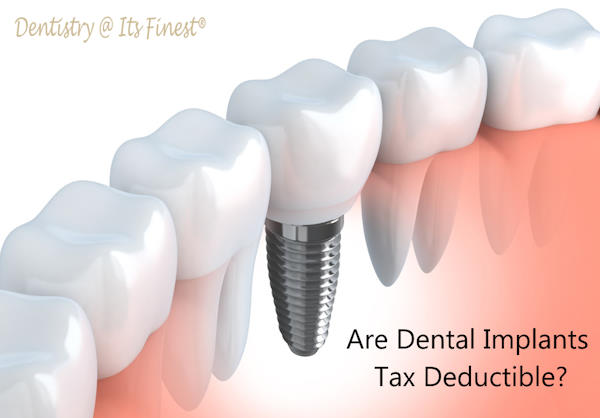Are you considering dental implants and wondering if they can be deducted from your taxes? Dental implants may indeed qualify for a tax deduction under IRS Topic 502: Medical and Dental Expenses. If the procedure is deemed medically necessary to address a health issue, such as tooth loss due to injury or illness, expenses related to dental work may be eligible for tax deduction. It’s important to note that cosmetic procedures are typically not tax-deductible.
https://www.irs.gov/taxtopics/tc502
Are Dental Implants Considered a Medical Expense?
Dental implants are classified as a medical expense when they are necessary due to tooth loss from an injury or illness. In such cases, individuals may be eligible to deduct these costs from their taxes. However, if the purpose of the treatment is solely cosmetic, it typically does not qualify for tax deductions.
In the United States, the Internal Revenue Service (IRS) allows taxpayers to deduct medical expenses from their taxes, including certain dental treatments. To qualify for deduction, these expenses must exceed a specific percentage of the individual’s adjusted gross income (AGI). Currently, if medical expenses surpass 7.5% of the AGI before deductions, they can be deducted. It’s important to note that this threshold may change, so staying informed about the latest tax rules is crucial.
Can Insurance Affect the Tax Deduction of Dental Implants?
The availability of dental insurance can indeed impact the portion of dental implant costs that you can deduct from your taxes. You may only deduct the amount that exceeds what the insurance has already paid for if your dental insurance covers a portion of the dental implant expenses.
For example, if your dental insurance covers $2,000 of the total $5,000 dental implant cost, you can deduct the remaining $3,000 on your taxes. This means you can only deduct the out-of-pocket expenses that exceed what your insurance has already contributed towards the treatment.
How Do I Claim My Dental Implant Tax Deduction?
To claim a tax deduction for dental implants, follow the steps listed below.
It is possible for you to deduct costs for placement of implants that count as allowed health expenses according to IRS rules if you keep good track of your records and stick to the process. Remember tax regulations and how much can be deducted might vary; therefore, keeping up-to-date and getting help from an expert when needed is important.
Contact at Dentistry At Its Finest to schedule an appointment with Dr. Michael Ayzin .

